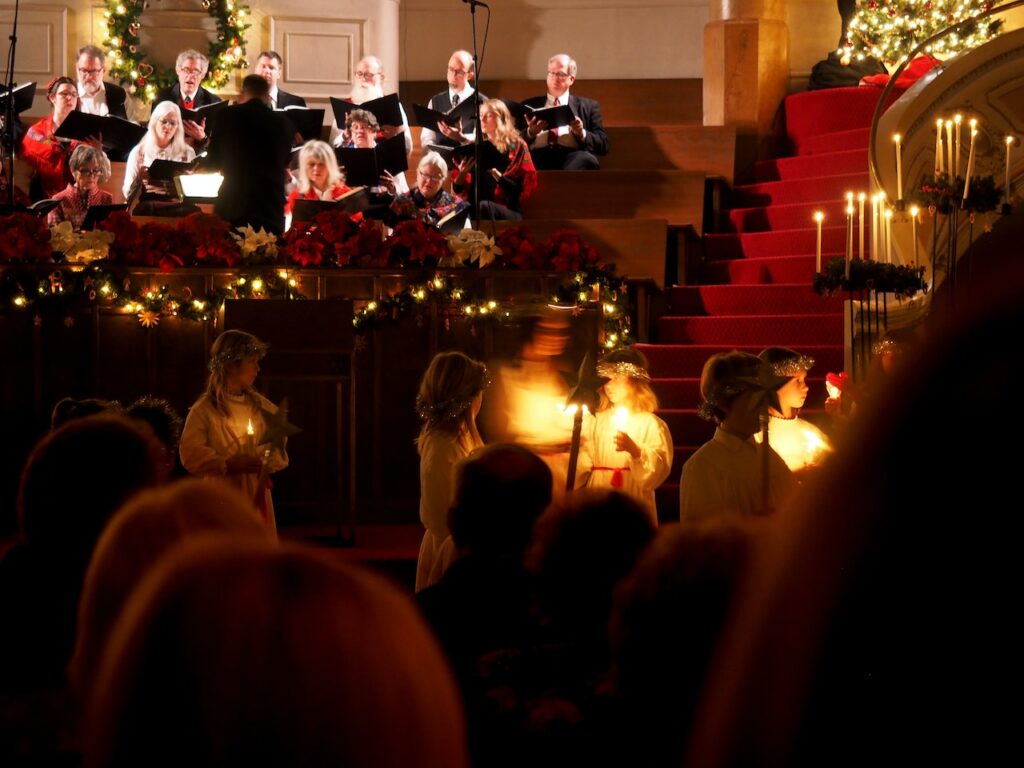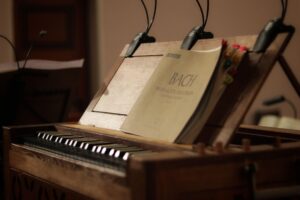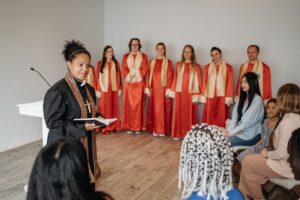The Relationship Of Music And Religion

Introduction
The relationship between Music and Religion is closely linked and is known as being a “complex and diverse” one. Music is commonly known for being a universal part of religion in a pleasurable way. For centuries music has been a huge part of the religious culture and has helped to ‘promote’ and ‘influence’ religion by engaging and embracing people in religion. An important reason why music is used in religion is to promote religious values by associating music with religious texts such as singing songs in God/s or Prophet/s names. Singing also shows a great deal of respect and appreciation for life and what happens after death depending on what you believe. For example, if you are christian you may sing songs sung within a church and are mostly related to God, Jesus or are about passages inside the bible. Music has the ability to deepen the meaning of words that accompany it, both in a religious context or even on your local radio station on your way to work. Music so important in religious society because by teaching children at a young age they can experience what it is like to be humble and forgiving towards one another with respect and kindness. The reason I chose this question was because from a young age I was interested in understanding how music has made an impact on religion and I was curious as to how other beliefs and cultures view this subject in their worships, certain celebrations and traditions. I am also exploring how music helps us spiritually and what makes hymns so important.
Celebrations and Traditions
Different religious are celebrated in different ways. In most faiths, music is used to express worship during festivals such as Christmas and Thanksgiving, celebrations, as well as rites of passage. In the Christian and Jewish traditions, many songs have been written for children so they can be used in prayers or have been written to give reason for particular celebrations. It is important that we try to find similarities in how we celebrate certain festivals and holidays so we can learn to understand those that we perceive as being different. An example of this is celebrations such as Sukkot (Judaism) and the Harvest Festival (Christianity) share many similarities, the main one being God is being thanked for the food grown. However the method of celebrating the festivals differs. Music is also used in other parts of religion such as doing meditation, holidays and for mourning.
Spirituality
Imagining a world without music can be very difficult. Music plays an important part in all our lives and we may choose to listen to for our own personal enjoyment from many different kinds of backgrounds, culture and history. Music is all around us and sometimes we might not even be aware of how much we are truly influenced by it all. One of the ways we do this is music often communicates with our emotions, culture, thoughts, transcending race and religion playing a vital role in the spiritual and emotional well being of our lives in relation to religion. Whilst some religions might say that they use music for praying or for worship, other religions might believe that music is taking away the attention of followers away from their God/Prophet or even seen as a devils tool.
Why are Hymns so important?
Hymns are important and sometimes considered sacred with regards to worshiping God/s. They often show respect and may be a solemn form of music filled with lyrics that are often sacred but are created to lift your spirit towards the worship of God. Throughout most church services different types of music are produced in different parts of the ceremony. For example, most churches in Nigeria celebrate thanksgiving and during this time they encourage people to do what’s known as “Dance Praises”.The purpose of this is to worship, singing and dancing while feeling encouraged to stand up and have some fun; to really feel the beat of the music whilst they pray to the lord and show gratitude and kindness to others.




